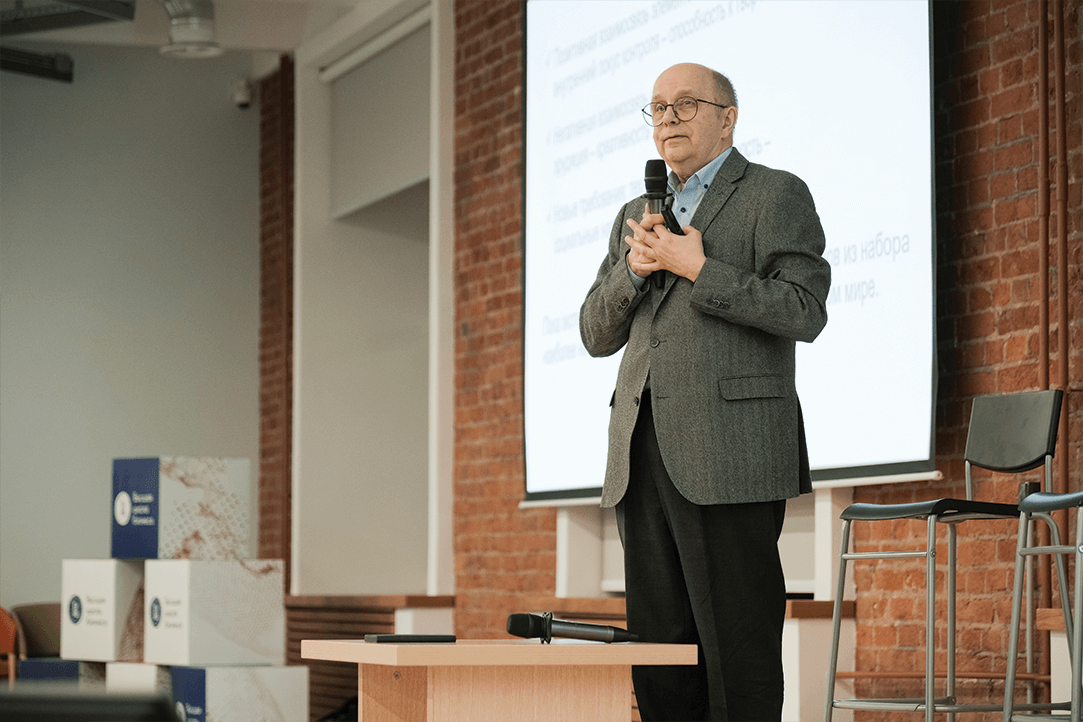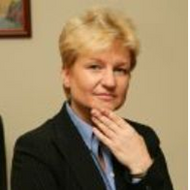"Cooperation with those who differ from you is one of the most in-demand skills of the XXI century manager": Professor Sergey Filonovich revealed the secrets of personal effectiveness

Sergey Filonovich, Professor Emeritus of the HSE University, Scientific Director of DBA and GMP programmes at the GSB Graduate School of Business, set the tone for the discussion. He proposed to consider the big picture of personal effectiveness in the context of modern business: what leadership skills come to the fore in a situation of global uncertainty and transformation, what helps to withstand the load and achieve balance. Guests of the event discussed the concept of "skill ambidexterity", learnt about the results of the latest McKinsey research on personal effectiveness and considered the strategies of the leader to develop the competences in demand from the point of view of personal effectiveness.
"A common situation faced by people who are successful by society's standards: the goal is achieved, but there is no joy. This indicates that they pursued a goal that was not their own, imposed from the outside. The most important skill that comes to the fore in today's world is proper goal setting, based on one's internal criteria of success and personal objectives," said Professor Filonovich. Those who fail to find the right goal for themselves, as a rule, go downshifting.
Is it possible to transfer the business approach to assessing efficiency and effectiveness to the individual? In answering this question, Sergey Filonovich suggested considering the criteria of personal effectiveness: social evaluation, uniqueness of the result, feeling of success, profit, scale of the result, usefulness of what has been done — and focus on your own priority. It is also necessary to pay attention to the means of achieving the set goals: according to Filonovich, here internal is more important than external. When a person starts moving towards a significant and difficult to achieve goal, he or she will have to change himself or herself by turning to internal resources — these are knowledge, skills, competences and psychological attitudes.

"An important psychological attitude in this context is locus of control: where you place the control. For example, it’s in the external environment: then you feel like a person who has no influence and can only adjust to changes. Or it’s inside yourself: one is responsible for what happens to him. Creative activity, which is necessary for the implementation of innovative ideas, arises only in people with an internal locus of control," said Sergei Filonovich.
According to research, one person cannot be effective in all areas. As a way out of this trap of modernity, Sergei Filonovich suggests turning to Peter Drucker's theory: focus on developing your strengths, while hiding your weaknesses through cooperation with people who are different from you.
"Hardly anyone is inspired by the prospect of spending a lot of time and effort to go from nothing to mediocrity. At the same time, it takes less resources and mental effort to develop your strengths — and you'll go from a person of ability to a person of brilliance. However, with this strategy, weaknesses will remain, so you need to attract those with complementary talents to your team. They are likely to be bad at what you are good at and love to do, but great at something else. In this case, your team is invincible: everyone does their part of the job masterfully, covering the other person's shortcomings," explained Professor Filonovic.
Cases from personal practice of cooperation with top managers and executives of leading companies were shared by Marina Oleshek, professor of practice of GMP, DBA and MBA programmes at the HSE Graduate School of Business, and one of the leading HR managers in Russia. Her track record includes more than 30,000 interviews with business leaders.

"I managed to work with outstanding people. And this is what I noticed: in any effective team each participant had a bright personality and each was selected on the principle of complementing the personal qualities of others", — Marina Oleshek confirmed the above mentioned with Russian companies’ cases.
The next discussion of the "Point of View" series will be held in March — follow the announcements on the GSB website and in VK https://vk.com/hse_gsb.
